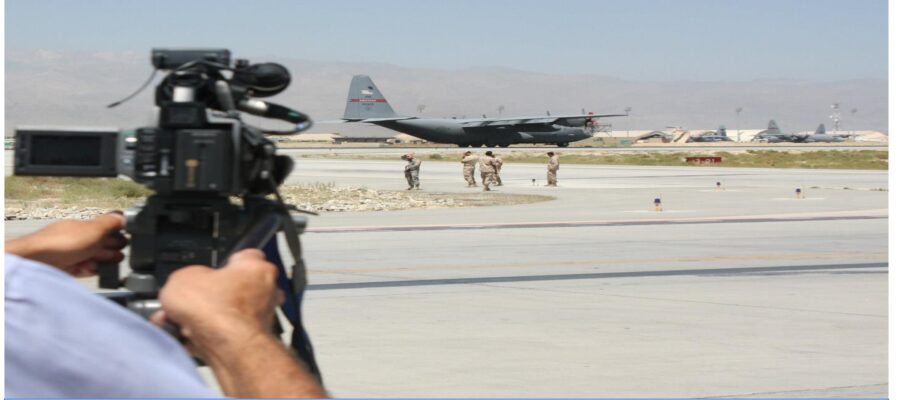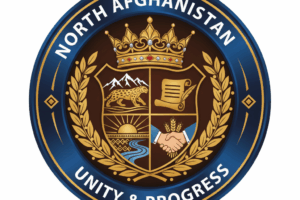Kauser News Agency recently reached out to a few legitimate Afghan journalists to ask them why they believe Afghan YouTubers are becoming journalists. The journalists, who spoke on condition of anonymity due to security concerns, cited several reasons,
they Said: Freedom of speech in Kabul under Taliban law is severely restricted. The Taliban have imposed a strict interpretation of Islamic law, which prohibits any speech that they deem to be offensive to Islam or to the Taliban itself. This includes speech that is critical of the Taliban, or that promotes human rights, democracy, or secularism.
The fall of Kabul to the Taliban in August 2021 had a devastating impact on the Afghan media landscape. In the months that followed, hundreds of media outlets were forced to close, and thousands of journalists lost their jobs.
In this climate, a new generation of Afghan YouTubers has emerged to fill the void. These young content creators are using their platforms to report on the news, document the challenges facing their country, and give a voice to those who have been marginalized.
There are several reasons why Afghan YouTubers are becoming journalists. First, YouTube is a relatively accessible platform. Anyone with a smartphone and an internet connection can start a YouTube channel. This makes it an attractive option for young people who want to become journalists but lack the resources or training to work for a traditional media outlet.
YouTube offers a degree of freedom that is not always available to journalists working in traditional media. The Taliban has cracked down on independent media outlets, and journalists who report on sensitive topics have been threatened or arrested. YouTubers, on the other hand, can operate with more anonymity and flexibility. They can also reach a wider audience than traditional media outlets, as YouTube is one of the most popular websites in Afghanistan.
Finally, some Afghan YouTubers are becoming journalists because they believe it is their civic duty.
They see themselves as providing a valuable service by reporting on the news and documenting the challenges facing their country. They are also helping to keep the flame of freedom of expression alive in Afghanistan, even under Taliban rule.
The rise of Afghan YouTubers is a positive development, but it is important to note that they face several challenges. First, they are often targeted by the Taliban and other extremist groups. In some cases, YouTubers have been threatened or arrested for their work.
Second, Afghan YouTubers often lack the training and resources that are available to journalists working for traditional media outlets. This can make it difficult for them to produce high-quality content and verify the accuracy of their information.
Third, YouTube is not immune to censorship. The Taliban has blocked access to some YouTube channels, and it has threatened to punish those who watch or share content that it deems to be offensive.
Despite these challenges, the rise of Afghan YouTubers is a sign of hope for the future of journalism in Afghanistan. These young content creators are providing a valuable service to their communities, and they are helping to keep the flame of freedom of expression alive in a country where it is under threat.
The Future of Afghan Journalism
The future of Afghan journalism is uncertain. The Taliban has cracked down on independent media, and it is unclear how much freedom journalists will be allowed to operate in the future. However, the rise of Afghan YouTubers shows that there is still a demand for independent news and information in the country. These young content creators are providing a valuable service, and they are an inspiration to Afghan journalists who are still fighting for freedom of expression.
The Role of Legitimate Afghan Journalists
Despite the challenges they face, legitimate Afghan journalists are still playing an important role in keeping the Afghan people informed. They are reporting on important issues, such as the humanitarian crisis in Afghanistan, and they are providing a voice to those who have been marginalized.
The rise of Afghan YouTubers does not mean that the role of legitimate journalists is over. The two groups can complement each other. YouTubers can provide a platform for journalists to share their work, and they can help to reach a wider audience. Journalists, on the other hand, can provide YouTubers with the training and resources they need to produce high-quality content.
The Risks and Rewards of Becoming a Journalist in Kabul
There is a risk that YouTubers who become journalists in Kabul could put the reputation of journalists in danger. This is because the Taliban has a history of cracking down on journalists who they deem to be critical of their rule. In recent years, several journalists have been killed or imprisoned by the Taliban. If YouTubers who are not trained journalists start reporting on sensitive topics, they could be seen as a threat by the Taliban and could face reprisals. This could make it more difficult for legitimate journalists to do their work and could also discourage people from seeking out news and information from independent sources.





